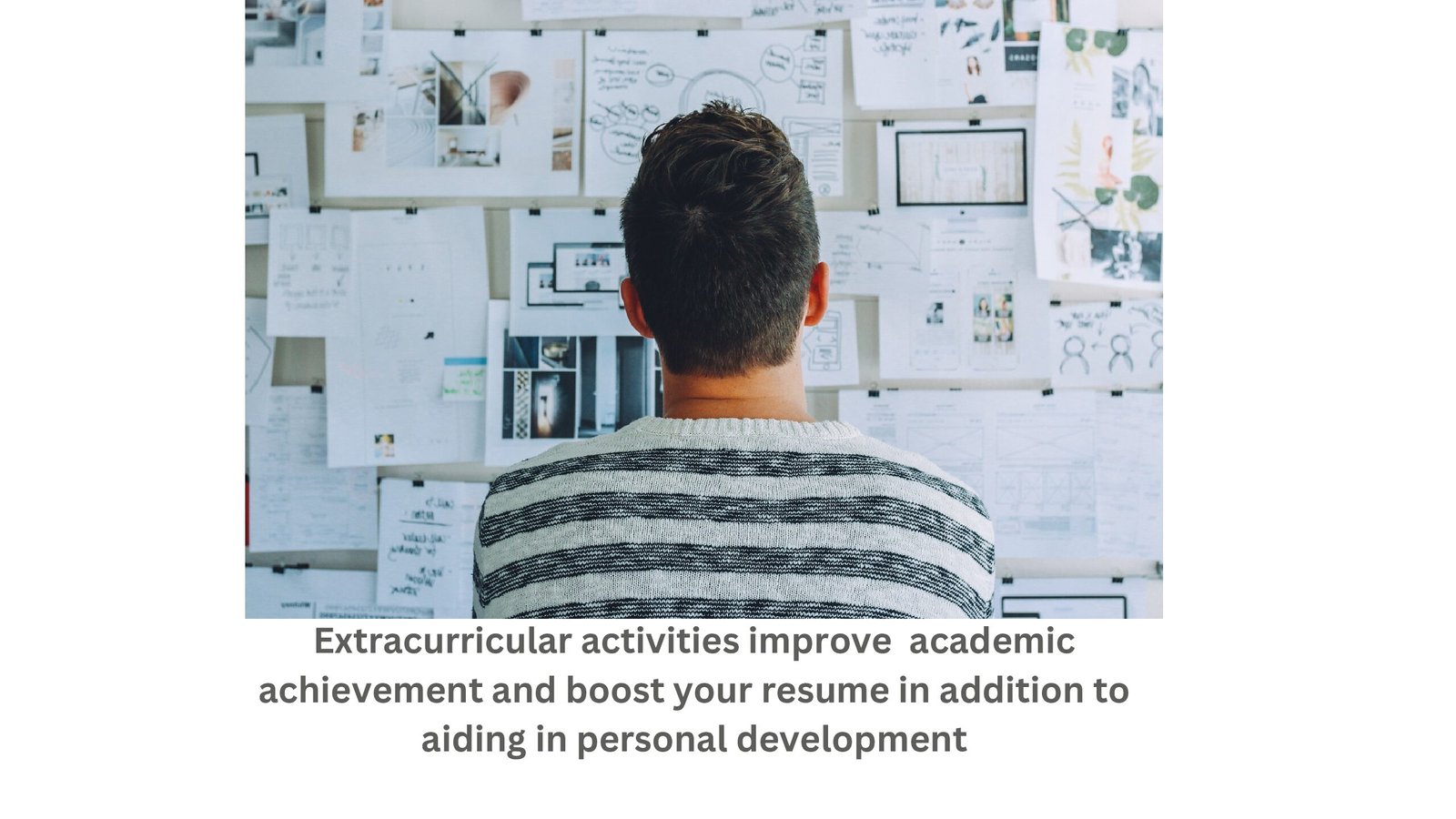The ultimate guide to winning scholarships for stem majors:
Financial aid options created especially to assist students pursuing degrees and professions in the subjects of science, technology, engineering, and mathematics are referred to as scholarships for STEM majors. The purpose of these scholarships is to uplift and assist those who wish to contribute to the progress of STEM fields.
It is imperative that students who are interested in STEM scholarships do extensive study and comprehend the particular requirements, deadlines, and eligibility requirements associated with each opportunity. To support students in pursuing their academic and professional objectives in these subjects, a plethora of colleges, organizations, and scholarship databases offer comprehensive information about available STEM scholarships.
It can be difficult to win scholarships for STEM (Science, Technology, Engineering, and Mathematics) majors, but you can improve your chances by being committed and strategically planning. The following is a comprehensive resource to assist you with the scholarship application process:

1. Scholarships for Research Early:
Make sure to begin looking for scholarships well in advance. Seek out chances from foundations, government agencies, commercial companies, and colleges. Websites such as College Board Scholarship Search, Chegg, and Fast Web can be quite helpful.
Should you wish to , there are numerous scholarships and programs designed to help students who do research. These chances can support your efforts financially, offer guidance, and open doors to future career and educational prospects. The following are a few categories of early research scholarships:
Research Experience for Undergraduates (REU) program of the National Science Foundation (NSF):
Undergraduate students have the chance to participate in practical research in a variety of STEM subjects through the NSF REU program. In addition to stipends, participants may also get housing and travel assistance.
Scholarship for Barry Goldwater and Program for Excellence in Education:
Undergraduate students in the United States who are highly motivated to pursue careers in research in the natural sciences, mathematics, or engineering are eligible to apply for the Goldwater Scholarship.
Research Grants in Aid of Sigma Xi: Grants-in-Aid of Research in all fields of science and engineering are available to graduate and undergraduate students through Sigma Xi, The Scientific Research Honor Society. The grants cover the cost of research.
The McNair Scholars Program: Through their participation in research and academic activities, undergraduates in the McNair Scholars Program are prepared for doctorate studies. It specifically targets pupils who belong to underrepresented groups.
Summer of Code at Google (GSOC): GSOC is an international organization that offers summer stipends to university students who work on open-source projects. Students get a great chance to get practical experience with research and coding.
2. Preserve a Solid Academic Record:
Academic quality is a prerequisite for many STEM scholarships. Maintaining a strong GPA and pushing yourself with advanced STEM classes are your key priorities.
Keeping up a strong academic record is essential for academic achievement and can lead to a number of options, such as graduate programs, scholarships, and jobs in the future. The following tactics will assist you in maintaining a strong academic record:
Establish Specific Objectives: Define your short-term and long-term academic goals. Staying motivated and focused is much easier when you have a clear idea of what you want to accomplish.
Establish a Reasonable Timetable: Create a well-planned calendar with specific times allotted for homework, classes, extracurricular activities, and studying. To prevent overcommitting yourself, be reasonable with the obligations you make.
Set Assignment Priorities: Sort your assignments according to their priority and due dates. To make bigger undertakings more doable, divide them up into smaller tasks.
Examine and Edit: Examine your notes and course materials on a regular basis. This helps you find any knowledge gaps that require more research in addition to confirming what you already know.
Take Part in After-School Activities: Take part in extracurricular activities that complement your hobbies and professional objectives. These pursuits can improve your abilities, open doors for networking, and add meaning to your academic career.
3. Take Part in Extracurricular Activities:
Take part in STEM-related extracurricular events including math leagues, science clubs, robotics teams, and coding contests. Your application for a scholarship may be strengthened by showcasing your interest and participation in these fields.
as a whole. It can improve your academic achievement and boost your resume in addition to aiding in personal development. Here are some pointers on how to participate in extracurricular activities successfully:
Determine Your Areas of Interest: Select extracurricular pursuits that support your passions, interests, and professional objectives. Your participation will become more fulfilling and meaningful as a result.
Join Associations and Clubs: Numerous colleges provide an array of clubs and associations encompassing a wide range of interests. Getting involved in a group that is associated with your major, interests, or cultural heritage can help you network and foster a feeling of community.
Maintain a Healthy Commitment: While participation is advantageous, don’t go overboard. Strike a balance between your extracurricular and academic obligations to avoid burnout and preserve a positive work-life balance.
Examine Your Options for Volunteering: One fulfilling approach to give back to the community and cultivate a sense of social responsibility is through volunteer work. Student volunteers are welcomed by many organizations for a variety of purposes.
Engage in Fitness and Sports: Participating in fitness activities or joining a sports team encourages discipline and teamwork in addition to physical well-being.
4. Look for Research Opportunities:

Take part in science fairs, internships, and research initiatives. Keep a record of your accomplishments and experiences in these areas; it will help your application stand out.
Finding research opportunities is a great opportunity to learn more about your subject matter, obtain practical experience, and establish a solid basis for your studies and career. This is a detailed guide that will show you where to look for research opportunities:
Recognize Your Interests: Decide the precise aspects of your field you would like to conduct research on, as well as your academic interests. Understanding your interests will help you find opportunities that fit your needs.
Make Contact with Academics: Speak with professors who are undertaking research in your field of interest in your department or in departments that are relevant to it. Attend office hours, show your curiosity, and ask about possible research project participation options.
Participate in departmental colloquia and seminars: Participate in research presentations, colloquia, and departmental seminars. These gatherings offer insightful information on the current research being conducted in your department and can assist you in finding possible research mentors.
Make Use of Internet Platforms: Investigate websites that offer research opportunities. Opportunities for research positions, internships, and assistantships are frequently posted on websites such as faculty pages, research databases, and university job boards.
5. Create Powerful Letters of Recommendation:
Develop connections with mentors, educators, or other experts who can draft strong letters that highlight your character, academic accomplishments, and commitment to STEM.
Strong recommendation letters can make a big difference in your ability to get scholarships, get into college, get an internship, or get a job. The following advice can help you write recommendation letters that have an impact:
Give Plenty Enough Prior Notice: Request letters as long as possible before the due date. This allows enough time for your referees to craft meaningful and persuasive letters.
Talk About Your Objectives and Successes: Tell your recommenders about your academic and professional aspirations. Tell them about your accomplishments, pertinent experiences, and the particular abilities or attributes you want them to focus on.
Provide Supplementary Materials: Provide a copy of your CV, personal statement, or any other materials that help put your aspirations and accomplishments in context. This enables your referees to better customize their letters to meet your demands.
Comparing with Peers (if relevant):Make a peer comparison if it is relevant for the candidate. This puts their accomplishments in perspective and gives the reader a point of comparison.
Make Use of Strong Words: Select strong, affirming wording to express your support. Words with greater weight are “exceptional,” “outstanding,” and “remarkable”.
Keep Your Tone Professional: Maintain a formal, professional tone. Make sure your greetings and wording are appropriate for the situation in which the suggestion will be applied.
Carefully proofread: Check the letter for clarity, consistency, and grammatical faults. Your credibility as a recommender is increased with a well-written letter.
6. Write an Engaging Personal Statement:

Customize your essay for each scholarship application. Emphasize your enthusiasm for STEM, your professional objectives, and any obstacles you’ve surmounted. Stress how the scholarship will advance your academic career.
For your personal statement to stand out while applying for jobs, scholarships, or college admissions, it must be well-written. The following guidelines can assist you in crafting a strong personal statement:
Begin with a Strong Introduction: Capture the reader’s interest right away with an engaging introduction. This might be a personal story, a challenging query, or a moving quotation about your goals or path.
Clearly Express Your Goal: Clearly describe why you are writing your personal statement. Whether it’s for a job application, college admittance, or scholarship, use this statement to explain to the reader what you hope to accomplish.
Explain Your Driving Force: Describe the things that drive and inspire you in your chosen career or endeavor. Make your statement more memorable by demonstrating your sincerity and passion.
Emphasize Your Special Skills and Experiences: List and highlight the special abilities, knowledge, or experiences that make you stand out. What makes you distinguish out above other applicants? Draw attention to these unique qualities.
Be Sincere and True: Be unique. Put yourself into your writing and allow your individuality to come through. Being genuine adds credibility to your statement and is frequently admired.
7. Highlight Your Leadership Skills:
A lot of STEM scholarships give importance to leadership traits. Give examples of times you’ve taken the lead, managed a group, or used STEM-related activities to benefit your community.
In order to effectively showcase your leadership abilities in a personal statement, CV, or interview, you should include specific instances that illustrate the beneficial effects of your leadership.
8. Emphasize Volunteer Work:

Take part in volunteer or community service projects that are relevant to STEM. Describe the ways in which your participation has improved the lives of others and your community.
Highlighting your volunteer work is an excellent way to demonstrate your commitment to community service, your values, and your ability to contribute positively to the world. When emphasizing volunteer work on your resume, personal statement, or during an interview, consider the following tips:
Emphasize Leadership Roles: If you have served in a leadership capacity during your volunteer work, highlight these roles. Talk about the ways you oversaw groups, planned activities, or acted alone to resolve issues within the company.
Demonstrate Long-Term dedication: Stress your long-term dedication if you have been volunteering for a long time. Reliability and commitment are demonstrated by continuous and consistent participation.
Talk About The Skills Acquired Via Volunteer Work: Talk about the abilities you gained via your voluntary work. These could include the capacity for effective communication, cultural competency, flexibility, and the capacity to collaborate with a variety of individuals.
Emphasize Specialized Skills: If your voluntary work required you to learn certain skills, such as grant writing, event planning, or fundraising, emphasize these abilities and how they can be helpful given the circumstances of the opportunity.
9. Exhibit Diversity and Inclusivity:

Diverse scholarship programs work to advance diversity in STEM disciplines. If appropriate, describe how your upbringing, life experiences, or viewpoint support a welcoming and diverse STEM community.
It is imperative to exhibit a dedication to diversity and inclusivity in a variety of settings, including academic admissions, personal statements, and employment applications. Here’s a how-to manual for demonstrating diversity and tolerance in the workplace:
Emphasize Diverse Experiences: Talk about your exposure to a range of cultures, viewpoints, and communities through your experiences. This can be going on trips, doing volunteer work, or taking part in cultural events.
Highlight Educational Diversity: If applicable, describe your experiences in a range of educational environments. Talk about your study, projects, or coursework that introduced you to a range of viewpoints and concepts.
Exhibit Participation in Inclusive Activities: Talk about your involvement in events or groups that support diversity and inclusivity. This can be going to events, attending clubs that promote diversity, or taking part in workshops.
Talk About Language Proficiency: If you have any language skills outside of your mother tongue, please mention them. This shows a willingness to accept people from different linguistic and cultural backgrounds.
10. Remain Organized:

Remind yourself of the prerequisites, deadlines, and application documents for scholarships. Make a spreadsheet or calendar to help you remain on top of things and not miss any possibilities.
Maintaining organization is a crucial ability that can make a big difference in your personal and professional development, as well as your academic and professional success. The following useful advice can assist you in maintaining organization in different areas of your life:
Academic Organization:
Make Use of a Calendar or Planner: To remember crucial dates, such deadlines for projects, exams, and other commitments, keep a planner or utilize an electronic calendar.
Set Task Priorities: Create a system for assigning jobs a priority. Decide what must be done first, then give high priority to that list.
Arrange the Course Materials: Organize the items you use in class. For every subject, use a folder or binder, and be sure to routinely clean and arrange your notes.
Keep a Professional Calendar for Professional Organization: Plan meetings, deadlines, and other work-related activities with a calendar. To help you remember to do crucial chores, set reminders.
How to Arrange Digital Files: Organize the digital files you own. Sort documents into folders and subfolders, then periodically archive and tidy up outdated data.
Set Work Task Priorities: Sort your work into priority lists according to importance and urgency. Start with the most important duties to guarantee they are finished on schedule.
Handling Emails Effectively: Organize the emails in your inbox. To organize and rank emails, use labels, folders, and filters.


